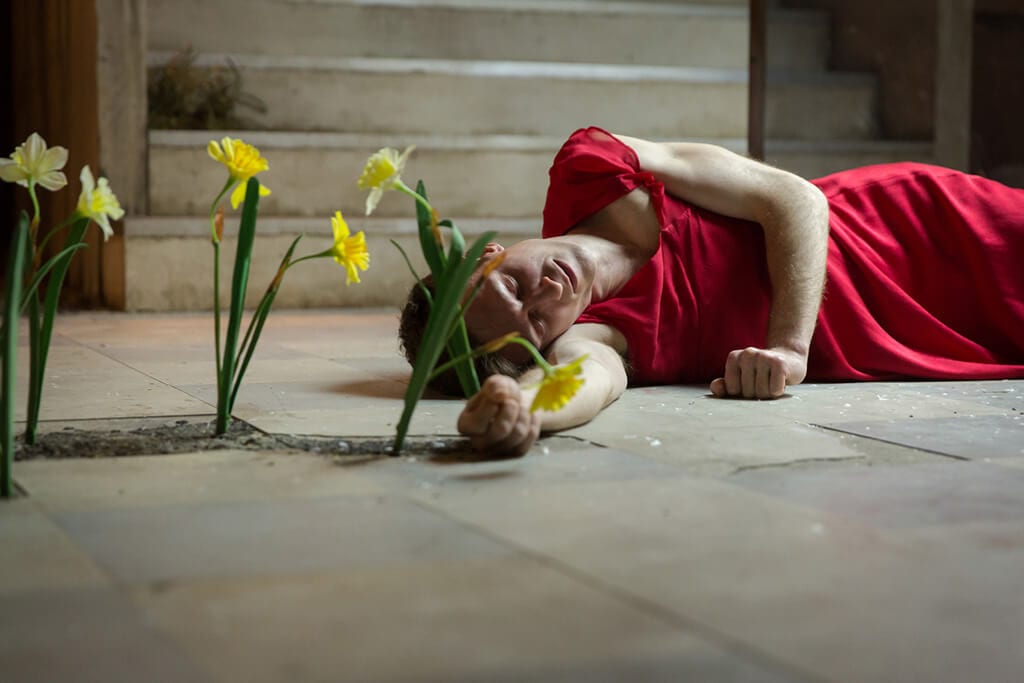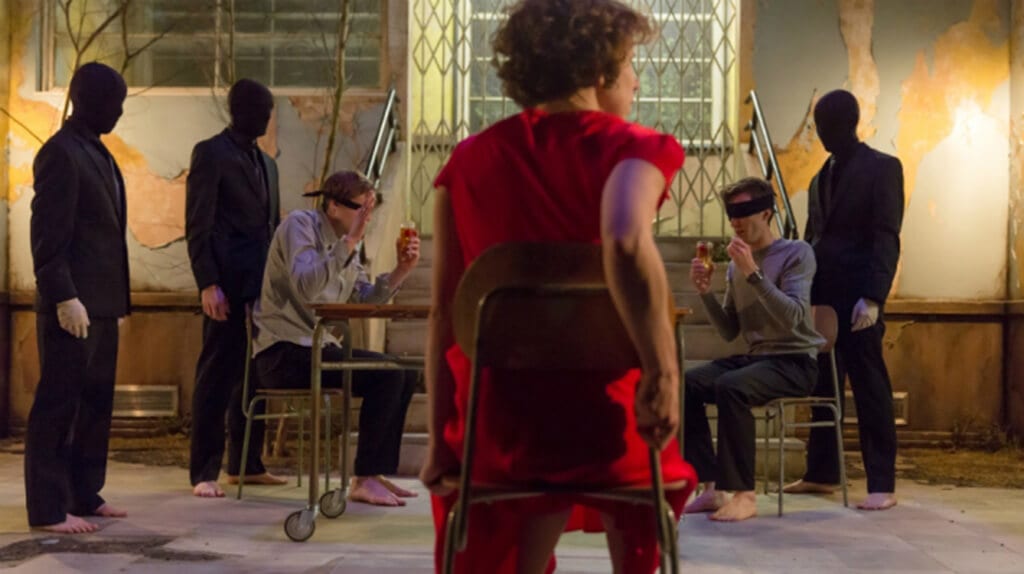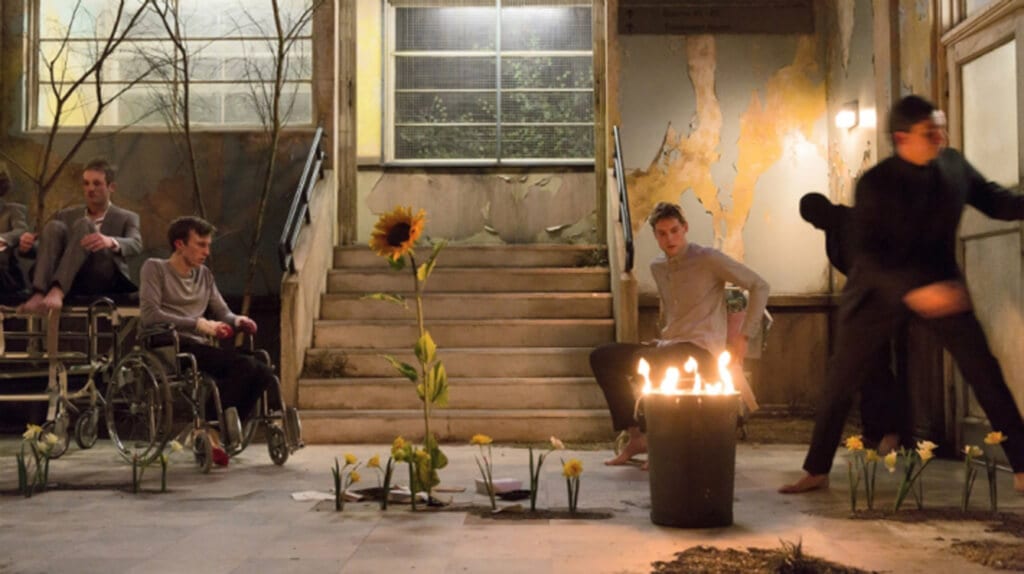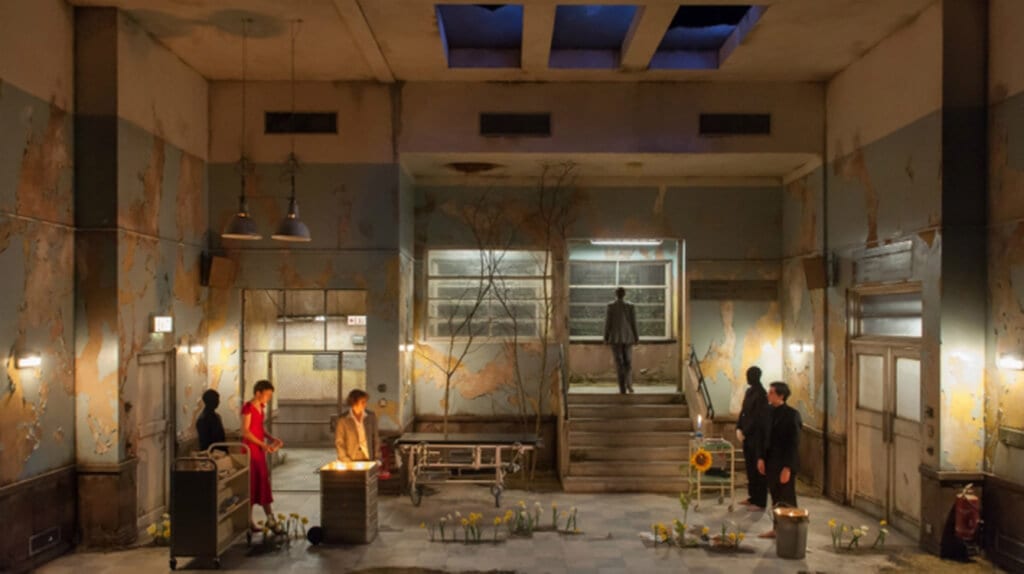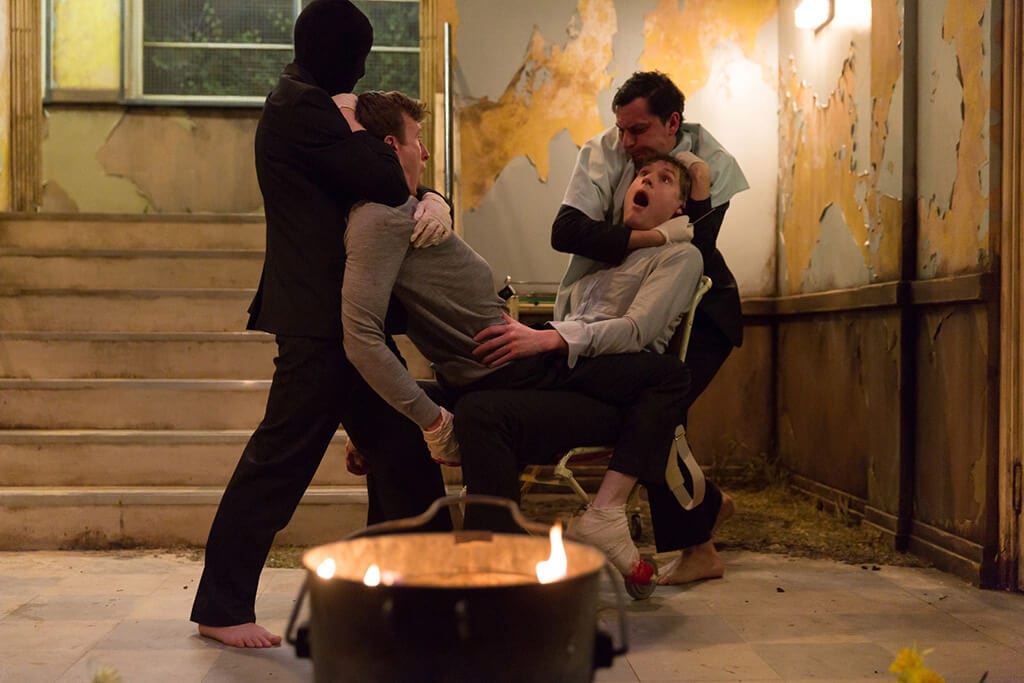Perhaps the defining feature of Sarah Kane’s work is problems, both in terms of content and form. Her plays ask us to consider love, gender, mental illness, war, and many other issues; they test the limits of drama, stripping away characters and offering unstageable stage directions. Although Cleansed is not as formally extreme as the later Crave and 4.48 Psychosis, its subject is intensely shocking. Kane claimed to have been inspired by Roland Barthes’ assertion that ‘being in love is like being in Auschwitz’; the play follows a number of couples in a university-cum-concentration-camp who are tested and tortured because of their declarations of love.
These punishments are graphically described in the text, causing problems for directors, who have to ask not only how to stage the play, but whether they should; forty people walked out and five fainted during the first week of performances at the National, due to its explicit content. Since the previews, the production has been being continually toned down in response to the audience reactions. Although the content of the play remains undeniably horrific, these cuts have rendered the play almost palatable – as much as this is possible for a piece about torture. This raises questions not only about the integrity of the play, and whether it should be performed as written, regardless of the toll that takes on audience and actors, but about the role of violence in theatre; while it has been normalised in TV and film, violence onstage still retains its shock value, especially when written or directed – or in the case of Cleansed, both – by women.
To look past the controversy surrounding the play, this production (toned down though it is) offers an interesting angle on Kane’s text. Most of the dialogue and stage directions are kept, although the rats have been almost completely cut out, making the debt to Orwell’s 1984 much less clear. The most noticeable difference between this production and the original text, however, is Tinker’s role. Although it is noted in stage directions that Tinker is almost always present and observing, in Mitchell’s version he takes a much more central position as the orchestrator of all the action, bringing Carl and Rod together to talk in the first place. Although this is an interesting interpretation of his role, it does cause some confusion when he punishes Carl and Rod for their relationship.
There are no distinct scene changes; the action is continuous, all taking place on the same set, and there is no interval. The play runs straight through and the audience is carried along on its momentum, as props from previous scenes pile up at the front of the stage and the characters struggle more and more to relate to one another surrounded by the physical reminders of the past. The set is excellent, depicting a derelict building of ambiguous purpose, but the decision to use only one location further constricts the narrative, as it revolves more tightly around Tinker’s machinations. The soundtrack, too, is a vital part of the experience, filled with mechanical screeches and throbbing drum beats which contribute to the tension and anxiety which run throughout the play.
Despite the often sickening subject matter, the cast acquits themselves admirably; Mothersdale gives an outstanding performance as the coldly sadistic and brutal Tinker. Terry and Butler are a riveting, dynamic duo throughout the production, while Hobday and Tennyson both offer extremely sympathetic portrayals of Carl and Robin. Although it is perhaps a shame that the production has been so subdued, it remains at heart a deeply thoughtful and original rendering of Kane’s play; the violence and horror, however muted, do not overpower the moments of happiness – and one suspects that, even in the production’s unbridled original iteration, they would not have. The continued presence of the flowers onstage is a small touch, but one which reminds us of the play’s message: that, in love and in life, there are moments of genuine joy which make all the pain worth it.

